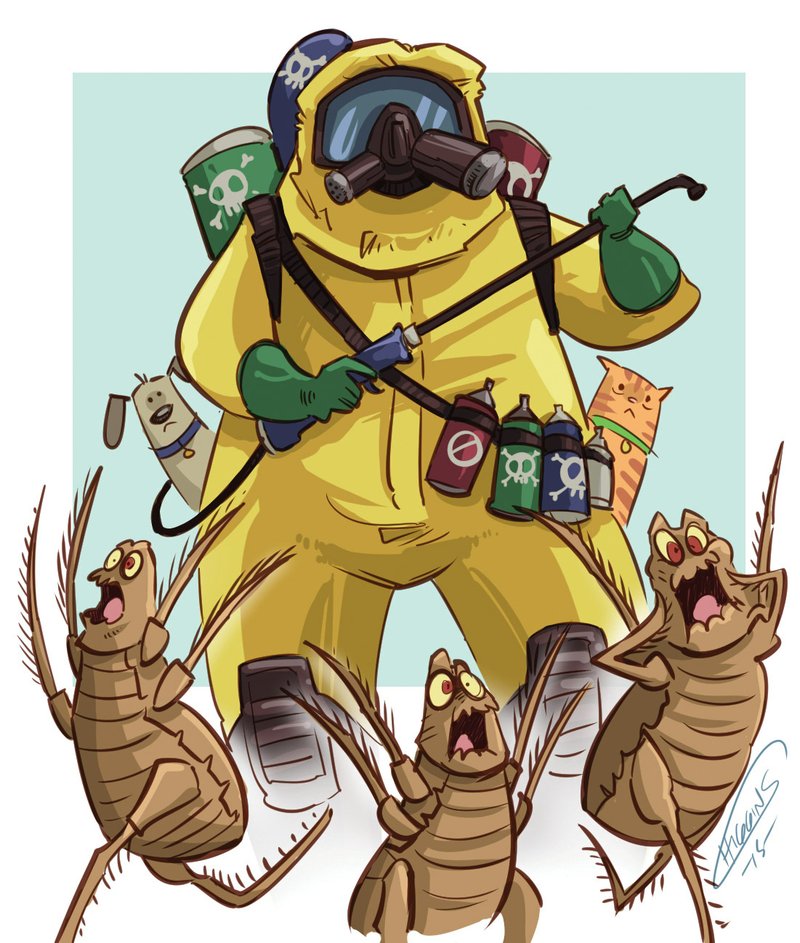We had problems with fleas in our yard last year so this summer I want to get a jump on things and try to keep an infestation from happening. Would it help to apply an insecticide to our yard as a preventive measure?
There are several strategies for lowering the possibility of fleas taking over your yard, but chemical pre-treatment isn't one of them, says Mike Hall of Clark Exterminating Co. in Little Rock.
"Any preventive flea treatment is a waste of time other than maybe for giving you peace of mind," Hall says, explaining that time and weather break down chemicals applied to the yard so the best time for application is when fleas appear.
A more effective tactic for flea prevention is to keep a yard clean so that it's less inviting to wild animals that are hosts for fleas, Hall says.
Here are some strategies for dealing with fleas in your yard and home. Information comes from Hall, the Clark Exterminating website at mybugproblem.com, McCauley Services at callmccauley.com, drsfostersmith.com and PetMd.com.
OUTDOORS
• Fleas hitch rides on wild animals such as opossums, squirrels, rabbits and raccoons as well as our pets, so put up fences to try and keep them off of your property. If you've got a persistent unwelcome guest, contact your local animal control agency. Some agencies provide traps and will move trapped animals for you. If that's not an option, you might want to contact a commercial company that specializes in critter control and eradication.
• Make your yard less hospitable to wild animals by mowing the grass frequently, cleaning up debris and decaying leaves, and keeping shrubs trimmed. "What you want to do is eliminate one of the corners of the triangle of life -- food, shelter, water." In this case, you're eliminating shelter.
• Clean under decks and anywhere leaves and yard trash may accumulate.
INDOORS
• Wash pet bedding frequently. Laundering will kill any fleas and eggs present. You may also want to launder your bedding frequently if your pets sleep with you.
• Vacuum all carpets, furniture and other areas where your pets spend a lot of time. Be sure and empty the vacuum cleaner bag or waste container outside when you're finished so you don't re-infest your house.
• Use a flea preventive on your pet. Talk with your veterinarian about what is best for your cat or dog based on its age and health. It's especially important to get the appropriate product for cats because some anti-flea products contain ingredients (specifically permethrin, which is in some medications labeled for dogs only) that are toxic to cats. If you're not getting a product from your veterinarian, read the label carefully before buying or applying.
Some of the products available for cats and dogs include Comfortis, a chewable tablet effective for one month, and monthly topical applications like Frontline, Advantix, Advantage and Revolution.
Another flea treatment, Capstar, is available for immediate relief from a flea infestation, but isn't intended for long-term use.
• Bathe your pet regularly. You can use a shampoo that contains an insecticide to kill fleas, but washing with any type of pet shampoo will get rid of any fleas on the pet at the time of the bath.
• Use a metal flea comb to remove adult fleas from your pet's fur. Running the comb through your pet's fur regularly can help you monitor and stay on top of a potential flea problem. Pet owners sometimes aren't aware the fleas are there until an infestation has become severe. Even if you don't see a flea while combing your pet, a flea comb will loosen "flea dirt," tiny black flecks of insect feces. Where there's flea dirt, there are always fleas.
CORRECTION
The amount of money Americans spend on their pets each year is even more "jaw-dropping" than reported in last week's (May 20) column, which incorrectly noted the figures in millions of dollars. Americans in 2014 actually spent $58.04 billion on pets in 2014 and are expected to spend more than $60 billion this year, according to the American Pet Products Association.
Family on 05/27/2015
